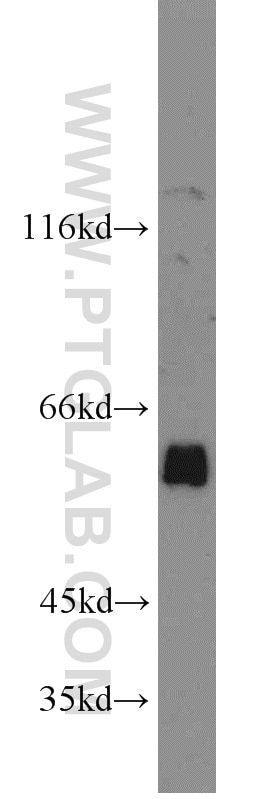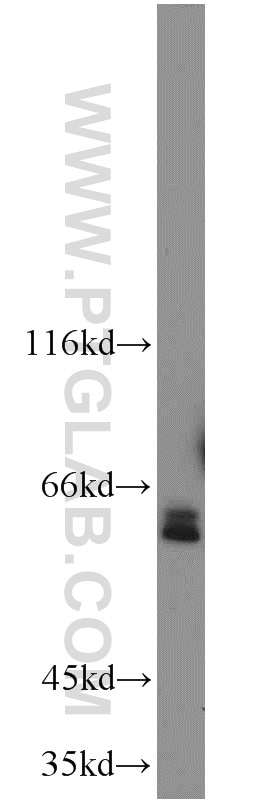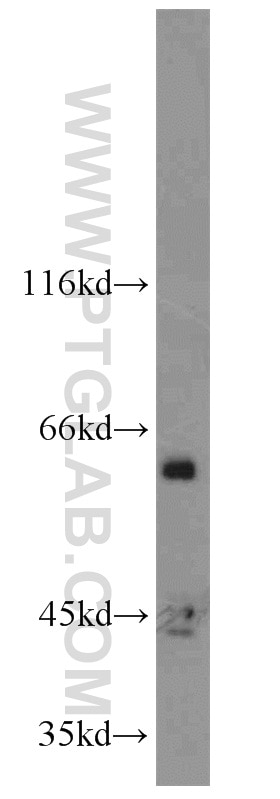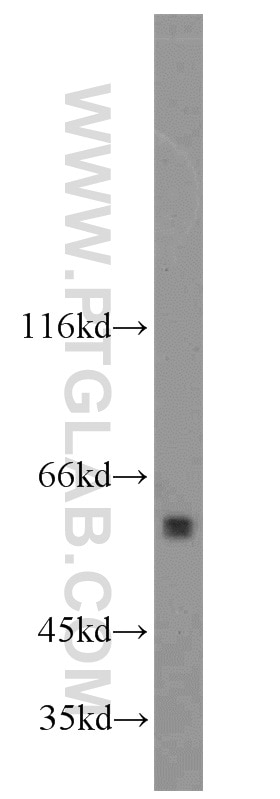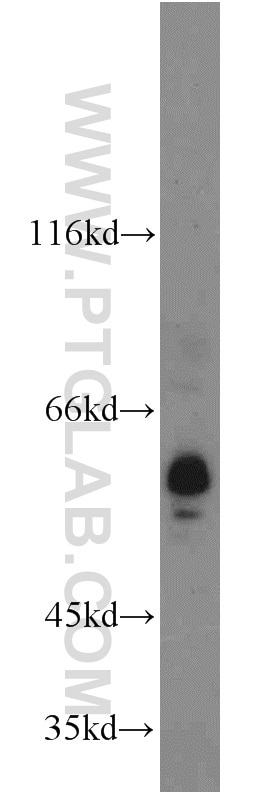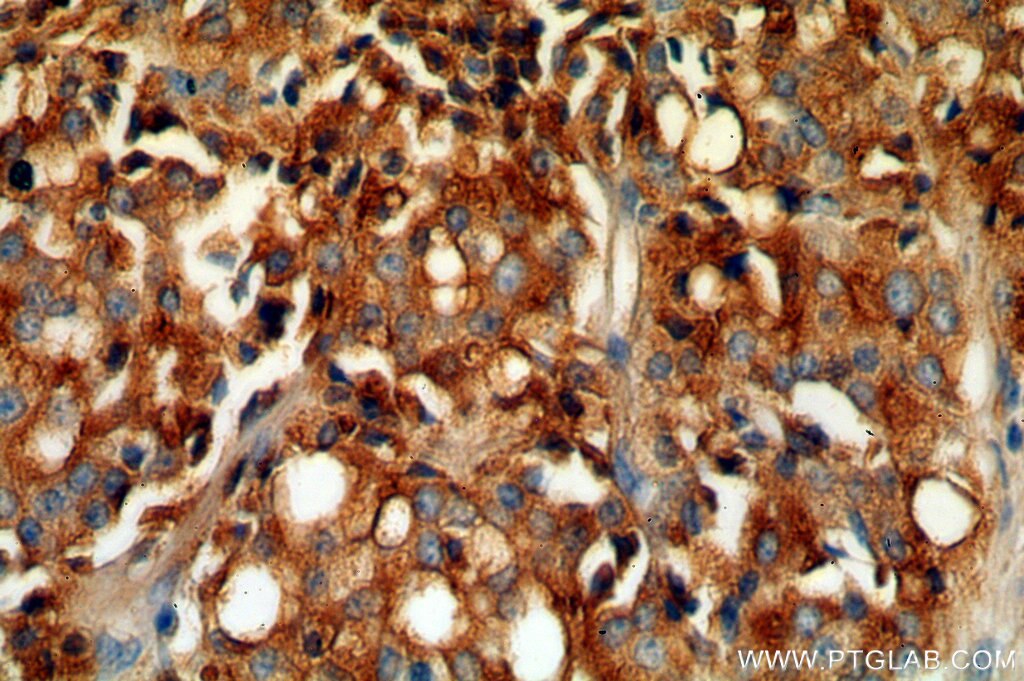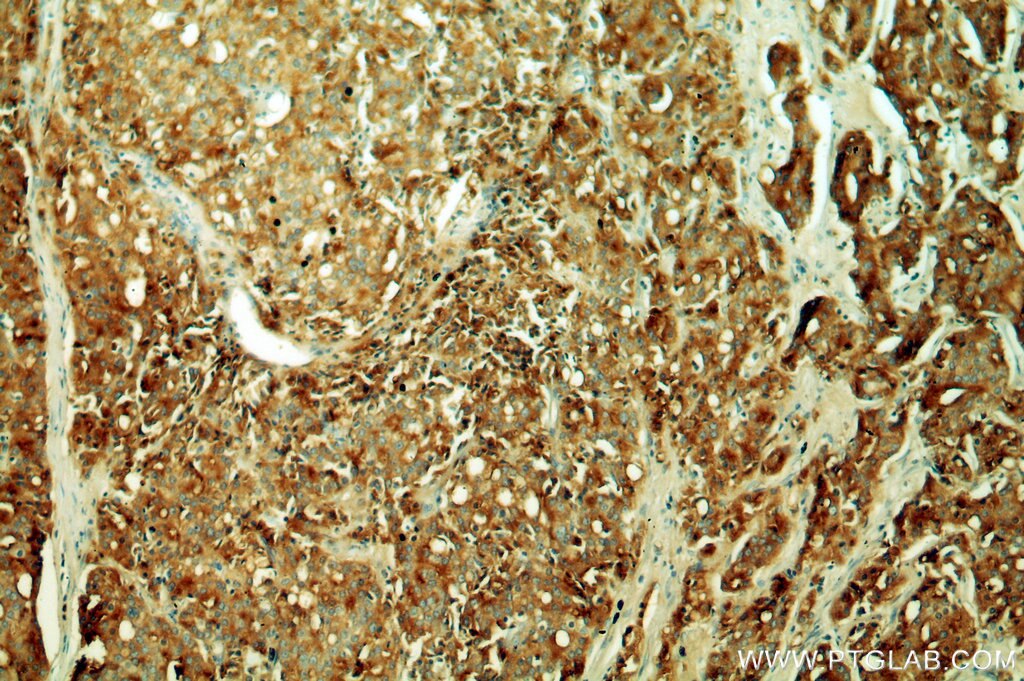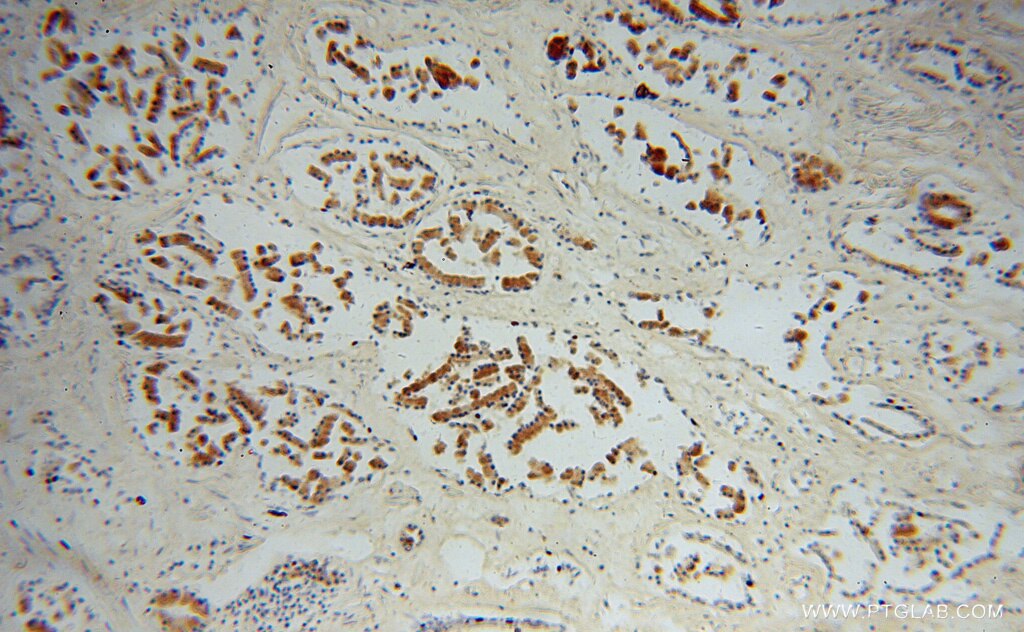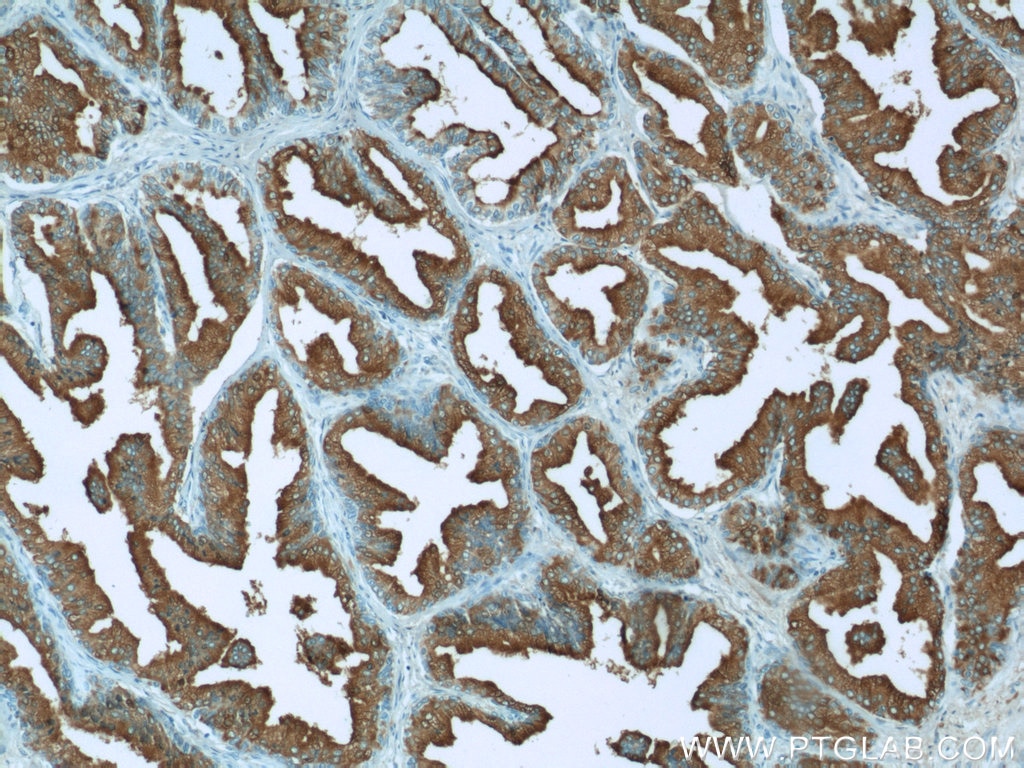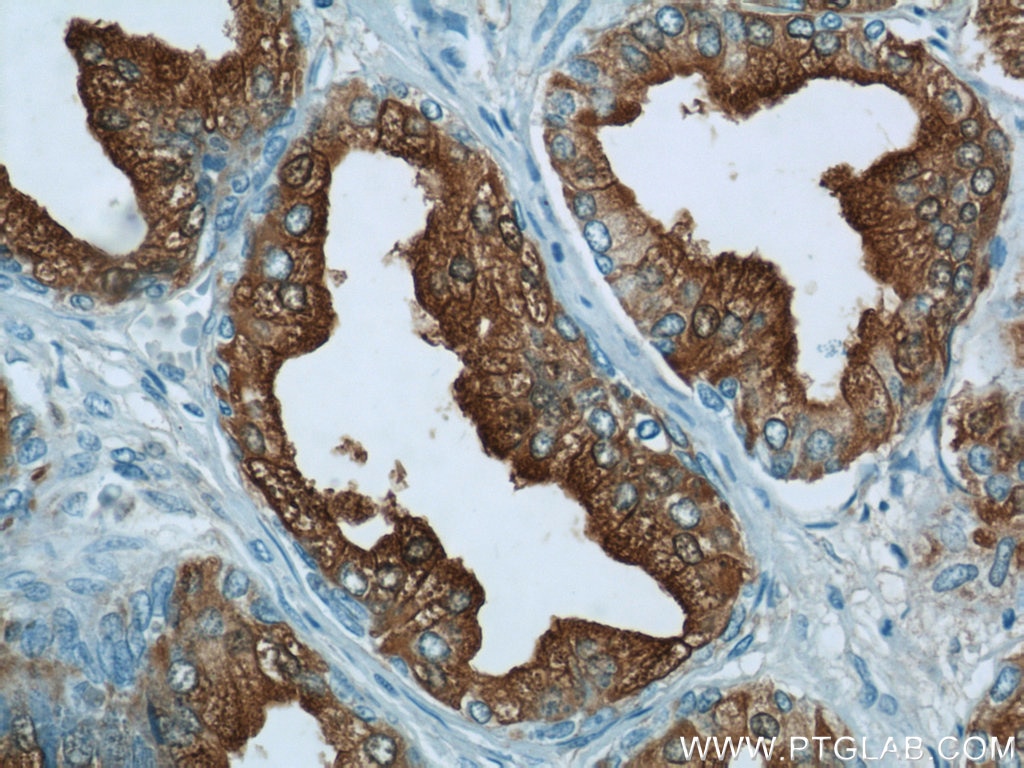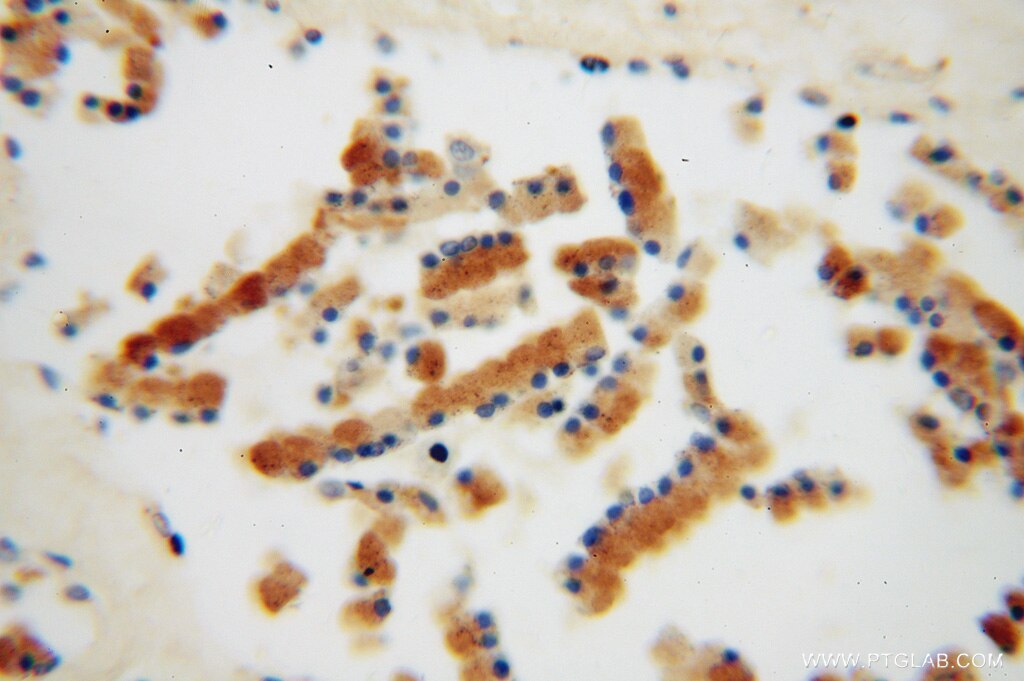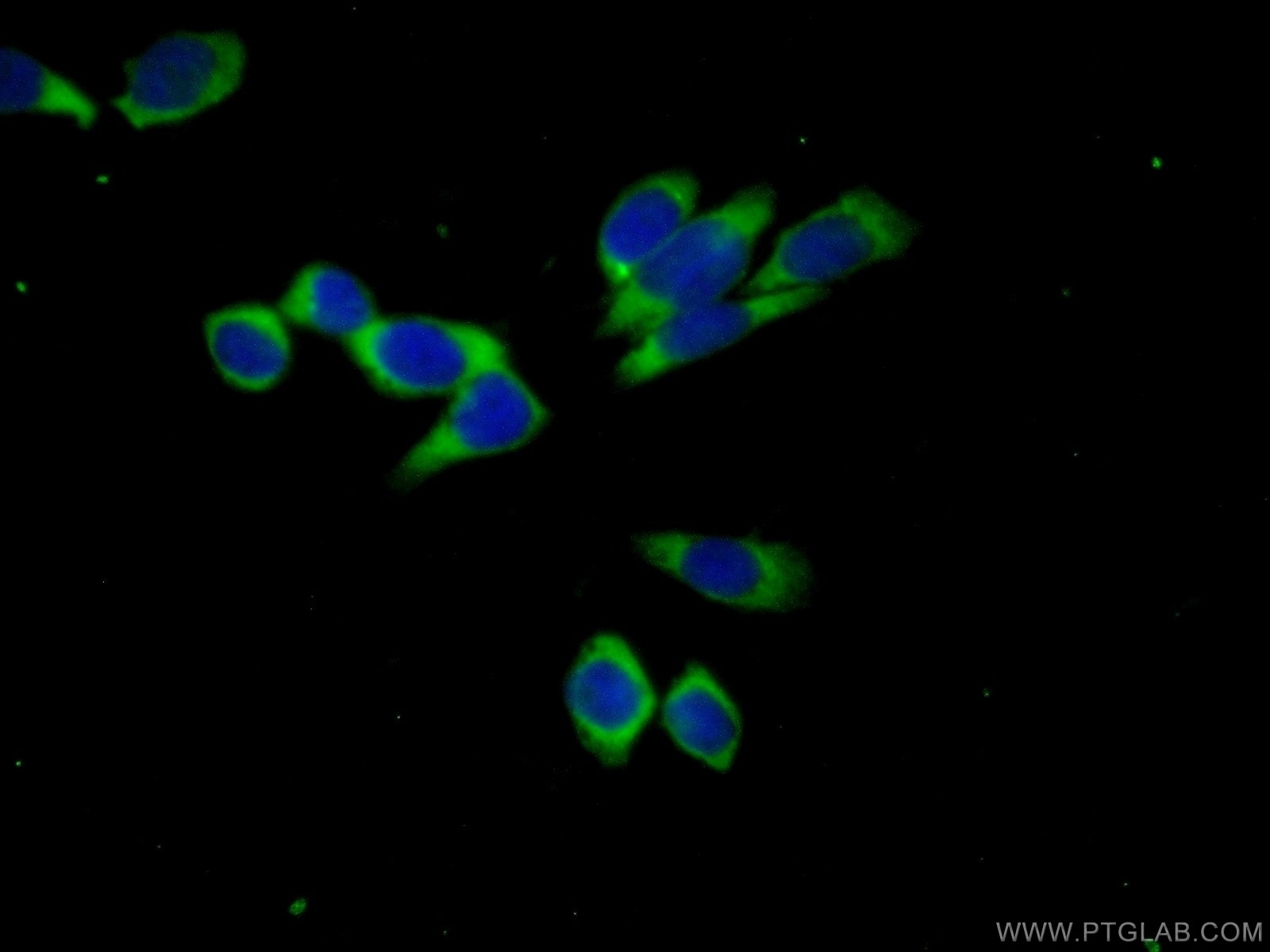Anticorps Polyclonal de lapin anti-ACPP
ACPP Polyclonal Antibody for WB, IF, IHC, ELISA
Hôte / Isotype
Lapin / IgG
Réactivité testée
Humain, souris et plus (2)
Applications
WB, IP, IF, IHC, ELISA
Conjugaison
Non conjugué
N° de cat : 15840-1-AP
Synonymes
Galerie de données de validation
Applications testées
| Résultats positifs en WB | cellules PC-3, cellules COLO 320, cellules MCF-7, tissu pulmonaire de souris, tissu testiculaire de souris |
| Résultats positifs en IHC | tissu de cancer de la prostate humain, tissu d'hyperplasie de la prostate humain il est suggéré de démasquer l'antigène avec un tampon de TE buffer pH 9.0; (*) À défaut, 'le démasquage de l'antigène peut être 'effectué avec un tampon citrate pH 6,0. |
| Résultats positifs en IF/ICC | cellules PC-3 |
Dilution recommandée
| Application | Dilution |
|---|---|
| Western Blot (WB) | WB : 1:500-1:2000 |
| Immunohistochimie (IHC) | IHC : 1:20-1:200 |
| Immunofluorescence (IF)/ICC | IF/ICC : 1:20-1:200 |
| It is recommended that this reagent should be titrated in each testing system to obtain optimal results. | |
| Sample-dependent, check data in validation data gallery | |
Applications publiées
| WB | See 1 publications below |
| IHC | See 3 publications below |
| IF | See 2 publications below |
| IP | See 1 publications below |
Informations sur le produit
15840-1-AP cible ACPP dans les applications de WB, IP, IF, IHC, ELISA et montre une réactivité avec des échantillons Humain, souris
| Réactivité | Humain, souris |
| Réactivité citée | rat, poulet, souris |
| Hôte / Isotype | Lapin / IgG |
| Clonalité | Polyclonal |
| Type | Anticorps |
| Immunogène | ACPP Protéine recombinante Ag8592 |
| Nom complet | acid phosphatase, prostate |
| Masse moléculaire calculée | 418 aa, 48 kDa |
| Poids moléculaire observé | 50-60 kDa |
| Numéro d’acquisition GenBank | BC007460 |
| Symbole du gène | ACPP |
| Identification du gène (NCBI) | 55 |
| Conjugaison | Non conjugué |
| Forme | Liquide |
| Méthode de purification | Purification par affinité contre l'antigène |
| Tampon de stockage | PBS with 0.02% sodium azide and 50% glycerol |
| Conditions de stockage | Stocker à -20°C. Stable pendant un an après l'expédition. L'aliquotage n'est pas nécessaire pour le stockage à -20oC Les 20ul contiennent 0,1% de BSA. |
Informations générales
ACPP is also named as PAP(prostatic acid phosphatase),5'-nucleotidase, thiamine monophosphatas and Belongs to the histidine acid phosphatase family.This enzyme is a homodimeric glycoprotein with a subunit molecular mass of 50 kDa and is an androgen-stimulated secretory product of the human prostate gland(PMID:8132635).It is also a non-specific phosphatase and has been implicated in the progression of prostate cancer, which inactivates LPA in human seminal plasma(PMID:15280042). This protein has three glycosylation sites(PMID:10639192;12525165).
Protocole
| Product Specific Protocols | |
|---|---|
| WB protocol for ACPP antibody 15840-1-AP | Download protocol |
| IHC protocol for ACPP antibody 15840-1-AP | Download protocol |
| IF protocol for ACPP antibody 15840-1-AP | Download protocol |
| Standard Protocols | |
|---|---|
| Click here to view our Standard Protocols |
Publications
| Species | Application | Title |
|---|---|---|
Biol Reprod Avian Prostatic Acid Phosphatase: Estrogen Regulation in the Oviduct and Epithelial Cell-Derived Ovarian Carcinomas. | ||
Am J Pathol PIK3CG Is a Potential Therapeutic Target in Androgen Receptor-Indifferent Metastatic Prostate Cancer. | ||
Eur J Pain Electroacupuncture relieves neuropathic pain by inhibiting degradation of the ecto-nucleotidase PAP in the dorsal root ganglions of CCI mice. | ||
Biochem Biophys Res Commun Dietary cholesterol affects expression of prostatic acid phosphatase in reproductive organs of male rats. |
